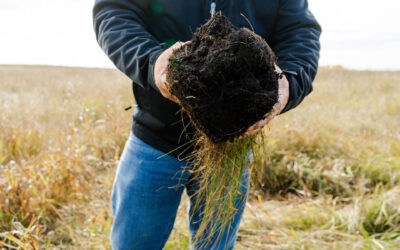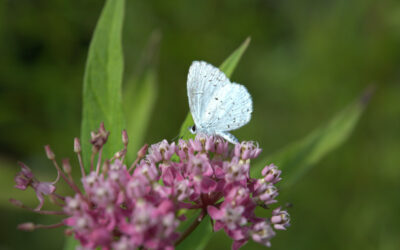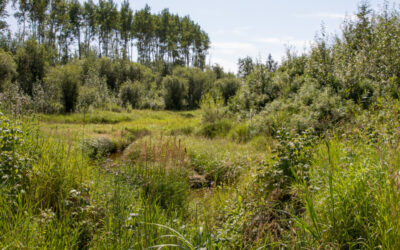An interview with Sarah Wade as part of a series unraveling how investment in nature-based solutions delivers positive environmental, social and economic impacts, creating a better future for everyone.

Sarah Wade
In particular, water quality and quantity are critically important for agricultural producers in Canada and around the globe.
“There are more opportunities to connect work on water, biodiversity and carbon,” said Sarah. “By using the AWS Standard and nature-based solutions, we are hitting multiple aspects of sustainability and bringing multiple benefits in sustainability, climate action and biodiversity. It can create more of an interesting offer for a farm or other agriculture producers.”
She points to landowners installing and restoring wetlands on their farms and ranches. These projects have a ripple effect, helping improve water quality on the farm and throughout the catchment.
“There’s also increasing awareness around the need to slow the flow of water on the land with the increasing intensity of the cycle of flood and drought. Nature-based solutions can help slow down water and create habitat,” Sarah said. “It’s also creating better options for water storage in the soil. Good water stewardship is actually good soil stewardship—and its good land management.”
These ecological outcomes also generate economic resilience for agricultural producers. Better soil quality can benefit crops, result in fewer washouts and create less strain on farm infrastructure. More water storage means the impacts of drought or flood conditions are mitigated; better for regular operation and less costly in dealing with crises.
Not only are there savings generated through proactive management, on-farm water management regimes can be tweaked to create more efficiencies and generate financial gains for producers.
Building Solutions
When Sarah attended the 2023 UN Water Conference in New York—the first of its kind in 50 years—nature-based solutions were at the forefront of discussions.
“People are looking for simple, replicable solutions that can be deployed everywhere,” she said. “The experts say these solutions may work in lots of locations, but the challenge is that they need to be rooted in local context, which to me feels very familiar from water stewardship.”
Every water stewardship project needs to be tailored to the local environment. What works in one location might not be appropriate in another setting. There isn’t one solution that can be applied across all projects.
“We often say to companies, it’s better to get started and learn as you go than to wait for the answers before you start to act on water, because the situation is not getting any better,” Sarah said. “It’s about taking small steps and scoping out the opportunities and learning from others. And then scaling up and growing from there and bringing other partners in to help access funds, knowledge and expertise.”
Continual improvement is an essential component of water stewardship. It involves identifying best practices and having a plan in place to work towards achieving them. This focus on continually learning and adapting practice can strengthen efforts towards achieving desired outcomes.
Idea sharing and peer-to-peer engagement is critical to good stewardship. Companies that typically compete with one another in the marketplace, such as large potato growers, are now collaborating to find solutions and share results.
“Connecting different farmers to each other and showing what each of them has done on their land and what worked and what didn’t work means they are more likely to see opportunities that they can take together,” Sarah said. “The more we can show that kind of evidence of positive impact and value for business or for the farm, the better.”
See Our Results

SDGs

Biodiversity

Climate Change




